“I’m a person.”
illustration of senior Maxwell Johnson
Cari Spencer
Editor in Chief
Imagine being called a monster by your classmates. Imagine them calling you slurs, treating you with disdain and even throwing items at you. Imagine hearing, repeatedly, that “character counts at Orono” but knowing there are corners of the school where that doesn’t seem to hold true. Now imagine feeling alone.
This is the reality for senior Maxwell Johnson, minus the feeling alone–although it wasn’t too long ago when he felt that way too. While he has found a strong support system between friends and teachers at OHS, the passive aggression and negativity directed towards him has not disappeared (a classmate once put their Kahoot name as a transgender slur in his class). Luckily, he is only growing stronger–more resilient against those who try to bring him down.
Maxwell Johnson, who goes by Max, is a regular person–one his friends describe as compassionate, fun to be around and even “like a deer” (that one was from junior Dylan Mika). It’s obvious, just talking to him, that he has depth and an admirable desire to continue bettering himself–to be kinder, more patient, more thoughtful.
“He is one of the kindest people that I know–very caring about other people, very dependable” math teacher and play director Virginia Enfield said, “everything he does he does with excellence.”
He’s been on a Queen kick recently, after seeing Bohemian Rhapsody in theaters. He’s rewatched The Office “a million times” and has a knack for making beautiful art from graphite and watercolor, from wood and screws.
Max is also transgender. This means that he has a gender identity and/or expression that differs from the cultural expectations placed on the sex he was assigned at birth, according to the Human Rights Campaign. Put simply, Max identifies as male but was “assigned female at birth,” as he said.
The signs that his assigned sex didn’t match up with who he is, go way back. When he looks back on his childhood, Max said that he notices a scattering of “that-makes-sense-now phenomenons.” During games of make-believe, he always wanted to play the male roles. He would try-out stereotypically male names, or run around without a shirt, and when his family talked about him as the “daughter” he always felt sad. “Out of place,” were his words.
“My childhood is a bit of a special case because there was some other things going on at the same time but to say the least I spent a good few years in absolute self hatred and dysphoria, and at a few points I almost took my life,” Max said.
These feelings only increased as he hit puberty. When a person’s assigned gender at birth doesn’t match the gender they identify with, they experience gender dysphoria, a clinically significant distress, according to the Human Rights Campaign. Gender dysphoria is all too familiar for Max.
“Growing up and reaching puberty was almost traumatizing because it’s when the dysphoria really started to kick in. I would hyperventilate even looking at my body or when I would try on bras or dresses,” Max said, “When people would ask about my future, I would cry because I just couldn’t see myself even existing. I hated the way I looked, I hated my body and I hated the way people saw me but I didn’t know why … this led to an eating disorder and depression.”
At age 15, he first heard of the term transgender, but pushed the thought of identifying with it away. 41 percent of the transgender population in the United States attempts suicide at least once, according to a review in the Indian Journal of Psychological Medicine. A report of the National Transgender Discrimination Survey found that 90 percent of transgender individuals surveyed had experienced workplace harassment, mistreatment or discrimination–or had hidden their identities to avoid such treatment; 19 percent had been denied health care because of their identities. In 2017 alone, 29 transgender people were murdered–many of them from a clear anti-transgender bias–according to the Human Rights Campaign.
How could a group of people associated with such tragedy be a group that he belonged to? Max denied the thought, wrote it off with a simple “that can’t be me.”
Then, after realizing that perhaps he wasn’t straight, he began to read more on the LGBTQ+ community. It was less scary for him to identify as genderfluid, a title he initially took on, but it felt off. Lying in bed one night, Max remembers sobbing. Uncontrollably. It was late and he had just watched a video of a transgender guy talk about knowing he was transgender: Max felt it too. That same night, he told his dad, and the journey of learning together and truly finding self-acceptance, began.
It hasn’t been easy, and just like any other teenager there are parts of himself that he would like to improve–but for the most part he has reached a place of acceptance in who he is, gender identity-wise. A large part of this has come from surrounding himself with caring and welcoming people-people who love him for who he is and celebrate him in all of his Max-ness.
Finding a Support System
Coming out as transgender is rarely easy–there are testimonies across the internet from transgender people who have faced hatred and even ostracization from their families as a result. 40 percent of the 1.6 million youths who experience homelessness in the United States each year identify as LGBT, according to a study conducted by the Williams Institute. It is reasonable to assume that family rejection contributes to this homelessness.
Max said he had a similar reaction from some members of his family and “I too have lost friends, fought with people, been bullied and had to fight to prove that I am who I say I am–to show people that I am me.”
Fortunately, Max’s father has shown him unconditional love and support. It took him a while to warm up to having a transgender child, Max said, but now he is a super-fan and even more of a trans-activist than Max is. He is one crucial part to Max’s welcoming, protective and support system.
At school, teachers and friends have weaved another safety net for Max. “I probably wouldn’t be here if it weren’t for my friends and supportive and kind teachers,” he said.
After joining theater at the beginning of his junior year, Max’s world changed. Suddenly, after some of the hardest years of his life, he said that his life was given color and reason. He found his people–friends that showed him wholesome, healing love. Finally, he said, he was able to flourish and grow.
Junior Michael DiPrima, who is not only Max’s friend but also his set-building buddy for OHS theater, said that whenever he would run offstage to “die” during the school’s production of Into the Woods, Max would be there with a hug.
“Theater gave me a community, friends, a family, a safe home, a will and drive to live,” Max said in his Sparkle speech, a traditional pep-talk and thank you/goodbye speech that seniors involved with theater give to the cast before each show starts.
Fortunately for Max, unlike many other transgender individuals out there, he has found people who have accepted him and shown him love–in turn, he is able to foresee a future for himself.
After finding his community, here, Max hopes to find one at college too. He said that he hopes to someday have a career as an anthropologist or theatrical assistant, to be able to fight for a dream rather than safety or respect and, perhaps, to find a “special someone” too.
His life has been enriched, saved even, by those who have shown him nothing but acceptance. But those who blatantly disrespect him and deny his identity–despite not knowing him personally, despite his existence having zero effect on them–still exist.
So what does he want those intolerant people to know? Max said three words: “I’m a person.”

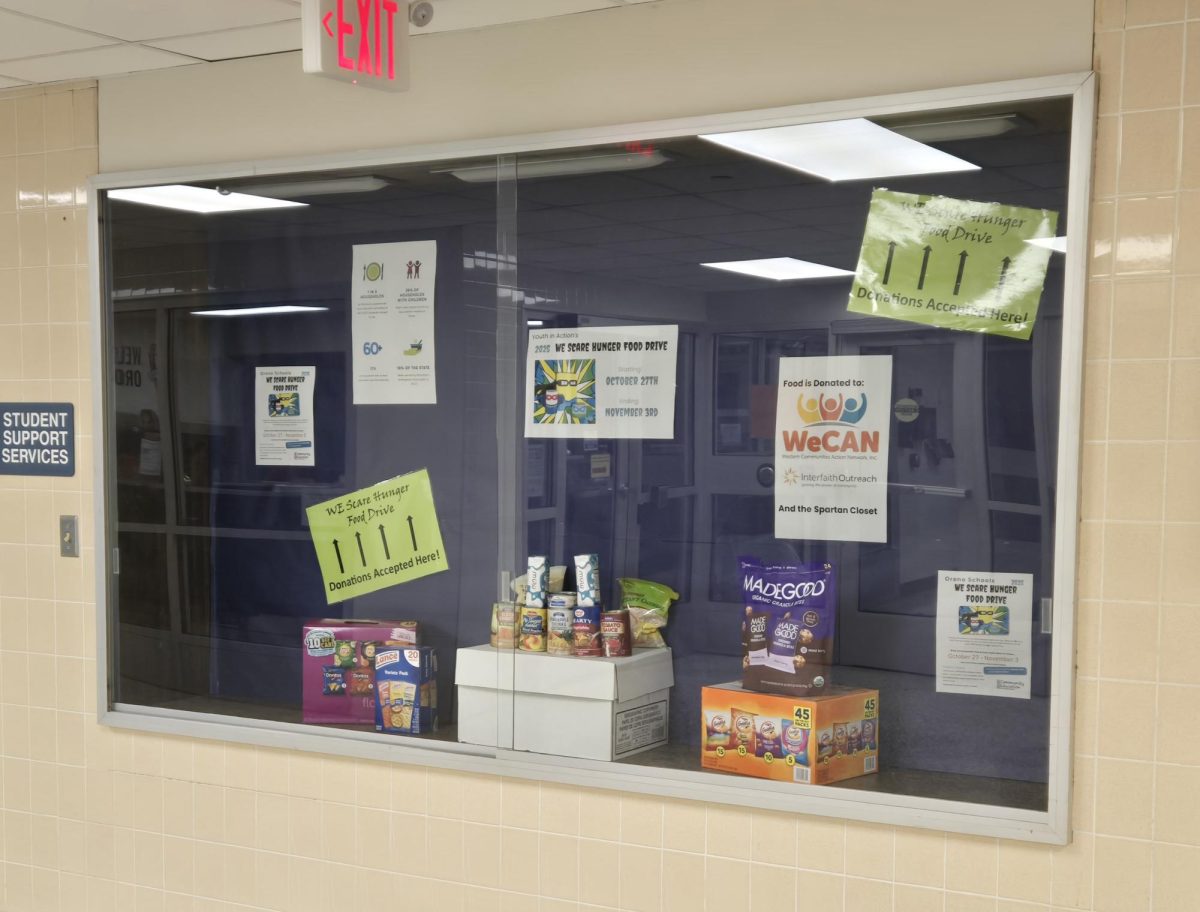
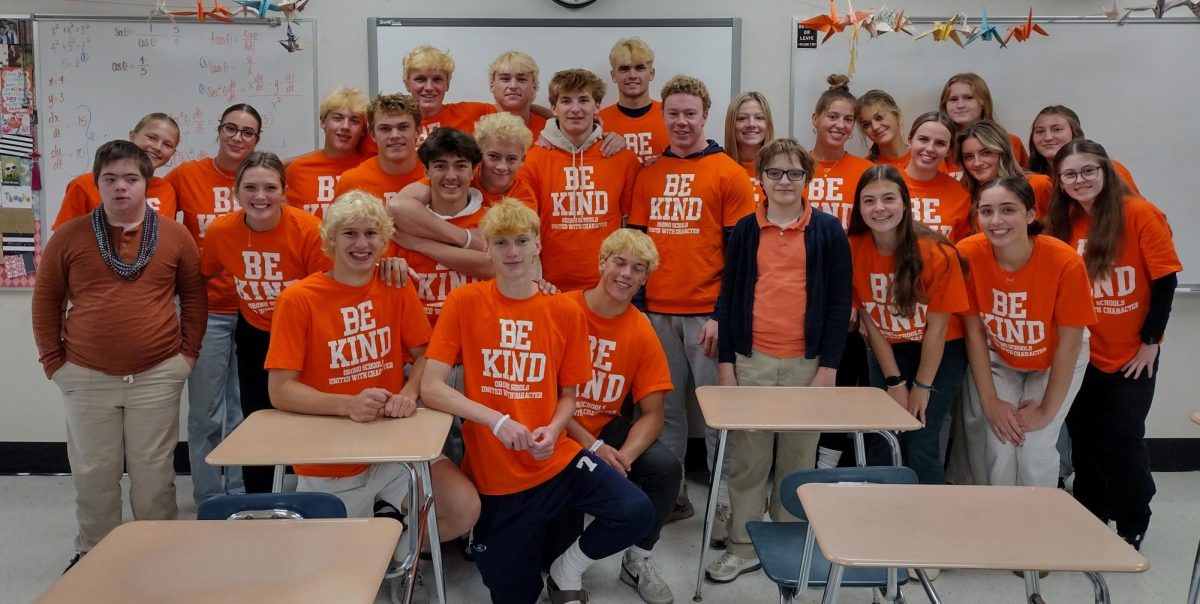



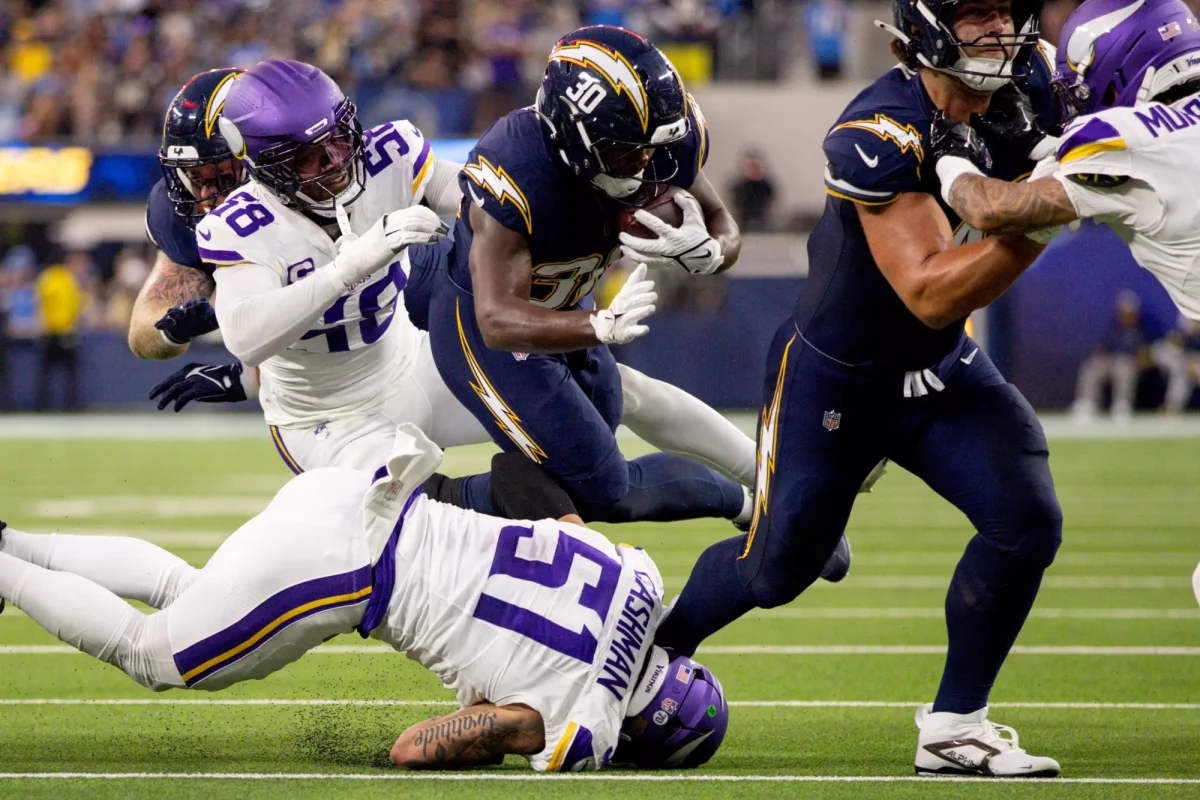











































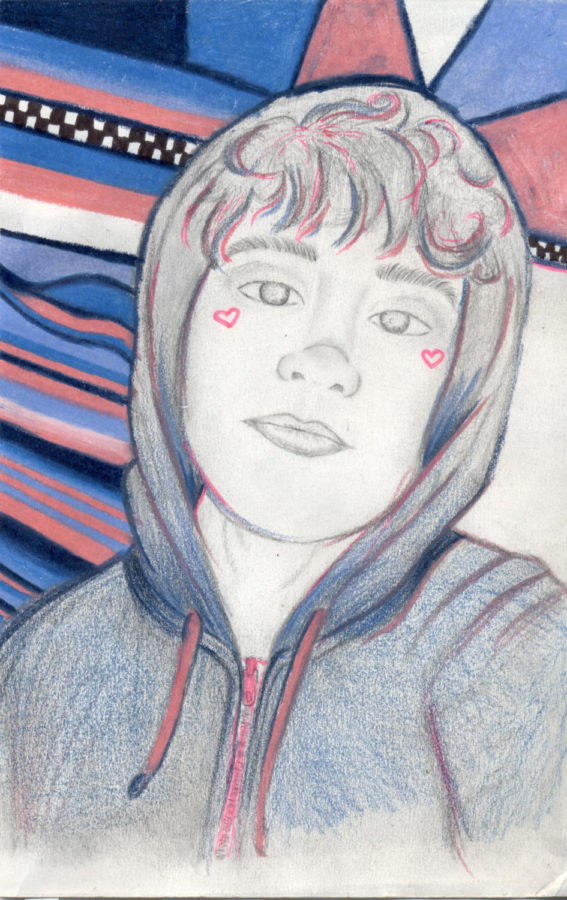




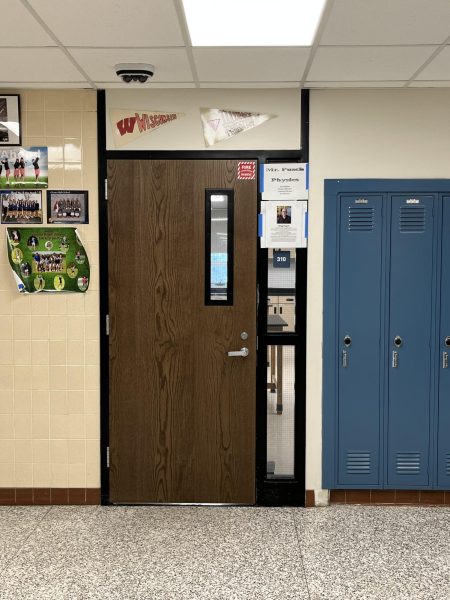
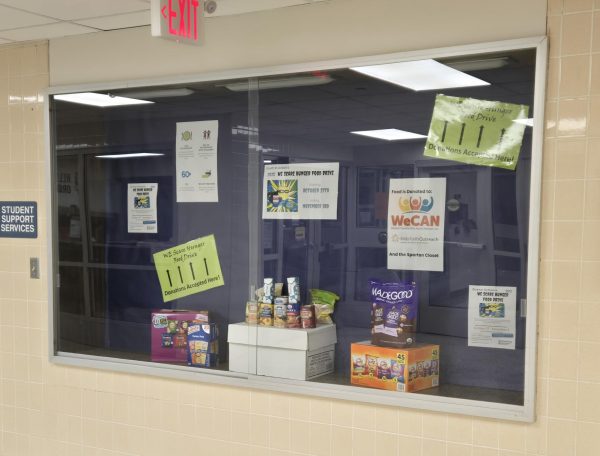
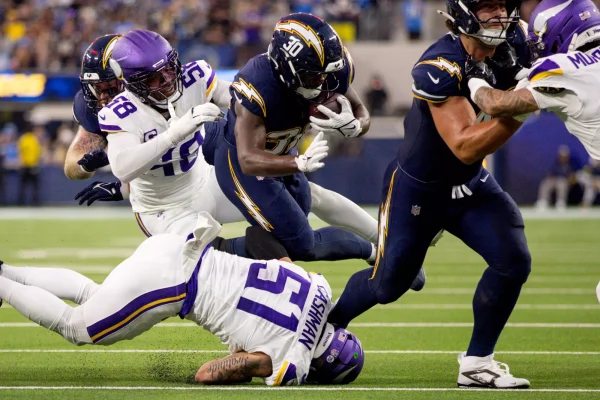


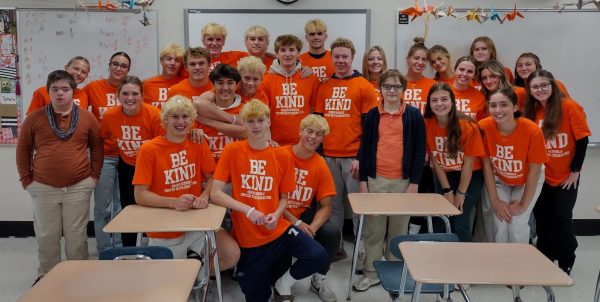
Spencer • Dec 5, 2019 at 6:21 pm
I feel this too. I am trans ftm and it hurts knowing that there are ppl who think it is okay to treat us differently.